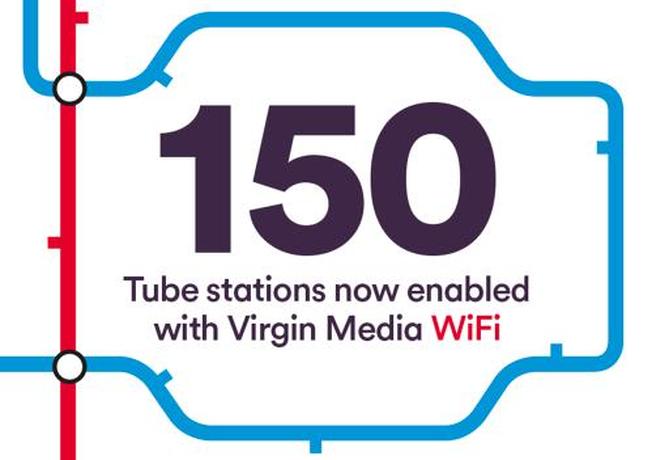London SMBs suffer sluggish broadband speeds
CEBR research suggest the capitals SMBs are failing to get a good return on their comms investments

London-based SMBs are being saddled with below average broadband speeds, according to findings from the Centre for Economics and Business Research (CEBR).
In a report commissioned by comms provider Relish, the CEBR shed light on the issues small businesses in the capital face on the communications front.
Its research suggests SMBs located in the City of London have average broadband speeds of just 11.9 Mbps, which is way below the capital-wide average of 20.5 Mbps.
The report also estimates that, out of the 420,630 SMBs based in London, just six per cent have access to superfast broadband.
Collectively, they use up 50,400 days a year arranging for new broadband installations to take place, the CEBR claims, which is costing them around 7.8 million a year in lost productivity.
Nicholas James, CEO of Relish, said given the contribution SMBs make towards the UK's economy providing them with adequate broadband services should be a must.
"SMBs play a crucial role in shaping the future of the capital and fast broadband in London should be available for all," he said.
Get the ITPro daily newsletter
Sign up today and you will receive a free copy of our Future Focus 2025 report - the leading guidance on AI, cybersecurity and other IT challenges as per 700+ senior executives
Given how widely used mobile phones are in the business world, the report estimates the capitals small businesses are "wasting" around 37 million a year on "redundant" landlines, as two thirds (62 per cent) of SMBs reckon they could cope without one.
Taken together, Colm Sheehy, senior economist at CEBR, said the results suggest SMBs are getting a poor return on their comms investments in the capital.
"The fact that Central London has the highest concentration of SMBs suffering from low broadband speeds has implications for productivity in London's economy," he said.
"In addition, the requirement to have a landline for most broadband services despite nearly two thirds of SMBs being able to operate effectively without it indicates that businesses are getting poor value for money from their landline."
-
 Should AI PCs be part of your next hardware refresh?
Should AI PCs be part of your next hardware refresh?AI PCs are fast becoming a business staple and a surefire way to future-proof your business
By Bobby Hellard Published
-
 Westcon-Comstor and Vectra AI launch brace of new channel initiatives
Westcon-Comstor and Vectra AI launch brace of new channel initiativesNews Westcon-Comstor and Vectra AI have announced the launch of two new channel growth initiatives focused on the managed security service provider (MSSP) space and AWS Marketplace.
By Daniel Todd Published
-
 Telehouse to expand London Docklands data centre campus
Telehouse to expand London Docklands data centre campusNews The new 31,000 square metre data centre will open in 2022
By Sabina Weston Published
-
 Virgin Media now offers free Wi-Fi at 150 Tube stations
Virgin Media now offers free Wi-Fi at 150 Tube stationsNews Virgin Media now provides free Wi-Fi in 150 different tube stations across London
By Caroline Preece Published
-
 Boris Johnson vows to bring "connectivity" to all in London
Boris Johnson vows to bring "connectivity" to all in LondonNews London Mayor wants to rollout a city-wide connectivity network to ensure everyone has internet access
By Caroline Donnelly Published
-
 5G network to arrive in London by 2020, claims Boris Johnson
5G network to arrive in London by 2020, claims Boris JohnsonNews London will kick-off the nationwide rollout of the ultra-fast network, Boris Johnson is expected to announce this week
By Caroline Donnelly Published
-
 EE to switch on 300Mbps 4G service in East London
EE to switch on 300Mbps 4G service in East LondonNews Mobile operator sets out plans to superfast mobile Wi-Fi services to the capital in 2014.
By Caroline Donnelly Published
-
 Tube customers to be charged for Wi-Fi access from January
Tube customers to be charged for Wi-Fi access from JanuaryNews Meanwhile, Vodafone, EE and Virgin Media customers will still be able to enjoy free internet access on the London Tube network.
By Lindsay Vormack Published
-
 Sophos flags security holes in London Wi-Fi hotspots
Sophos flags security holes in London Wi-Fi hotspotsNews Security vendor hits out at widespread use of legacy router hardware across the Capital.
By Caroline Donnelly Published
-
 O2 rolls out free London Wi-Fi
O2 rolls out free London Wi-FiNews Mobile operator clinches deal to offer free public internet services to Kensington, Westminster and Chelsea residents.
By Xin Li Published